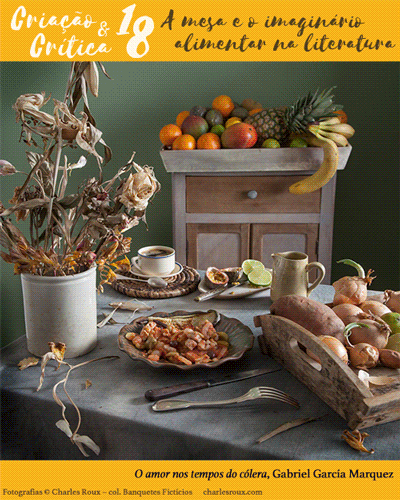Jorge Luis Borges at two final judgments
DOI:
https://doi.org/10.11606/issn.1984-1124.v0i18p216-233Keywords:
Jorge Luis Borges, “Sentirse en muerte”, astonishment, Time, Eternity, CriollismoAbstract
In 1988, Beatriz Sarlo proposes a passage between two poetics in Jorge Luis Borges’s work: from Evaristo Carriego (1930) towards Historia universal de la infamia (1935). Both texts are “insidious,” argues Sarlo, because they falsify the biographies of their characters. However, the 1935 book operates on a universal basis. This movement, according to Sarlo, has several prerogatives associated with a double inscription of Borges: citizen of the world and, simultaneously, citizen of a country concieved from the image of Buenos Aires. In this essay, we suggest an earlier passage, evidenced in “Sentirse en muerte” (1928): from Criollismo – the poet of the suburbs, endowed with the capacity for sensitive transit and installed within the limits of his imagined city, which seeks the poetic representation worthy of his concept of Argentinity – toward the prose that reaches the argumentative-reflective character of the celebrated Borges’s essays on Time and Eternity, the beginning of his legitimation as “pircibidor abstracto del mundo”. This movement has also several prerogatives associated with a double inscription of Borges: as poet, man of letters and programmatic essayist of Criollismo; as an expert meditator on the astonishment found out in our concepts of Life, Time, and Universe, working with texts from Philosophy and Theology.Downloads
References
ALMEIDA, Iván. De Borges a Schopenhauer. Variaciones Borges, Pittsburgh: University of Pittsburgh, n. 17, p. 103-141, Jan. 2004.
BORGES, Jorge Luis. Obras completas: 1923-1972. Buenos Aires: Emecé, 1974.
BORGES, Jorge Luis. El idioma de los argentinos. Buenos Aires: Seix Barral, 1994.
BORGES, Jorge Luis. Inquisiciones. Madrid: Alianza, 1998.
BORGES, Jorge Luis. Textos recobrados: 1919-1929. Barcelona: Emecé, 2002.
BORGES, Jorge Luis. El tamaño de mi esperanza. Madrid: Alianza, 2005.
BORGES, Jorge Luis. Obras completas: 1975-1988. Buenos Aires: Emecé, 2007.
BORGES, Jorge Luis. Fervor de Buenos Aires. In: VÁZQUEZ, Antonio Cajero. Estudio y edición crítica de Fervor de Buenos Aires. Ciudad de México, 2006. 423 f. Tese (Doutorado em Literatura Hispânica) – Centro de Estudios Lingüísticos y Literários, El Colegio de México.
BORGES, Jorge Luis; CARRIZO, Antonio. Borges, el memorioso. Ciudad de México: Buenos Aires: Fondo de Cultura Económica, 1982.
CAMURATI, Mireya. Borges ¿un argentino extraviado en la metafisica? Variaciones Borges, Pittsburgh: University of Pittsburgh, n. 31, p. 221-232, Jan. 2011.
CAVALCANTI, Carla. Em busca do êxtase. In: ______ (Org.). Poesia expressionista alemã: uma antologia. Trad. Carla Cavalcanti. São Paulo: Estação liberdade, 2000. Edição bilíngue. p. 17-33.
LAGES, Susana Kampff. Poesia lírica expressionista. In: GUINSBURG, Jacó (Org.). O expressionismo. São Paulo: Perspectiva, 2002. p. 157-188.
LEFERE, Robin. “Fervor de Buenos Aires” en contexto. Variaciones Borges, Pittsburgh: University of Pittsburgh, n. 19, p. 209-226, Jan. 2005.
MACADAM, Alfred. Origins and Narratives. MLN, Baltimore, Maryland: Johns Hopkins University Press, v. 95, n. 2, p. 424-435, 1980.
RISULEO, Fernando. Desarrollos en infraestructura de gas natural y crecimiento económico. Buenos Aires: Cámara Argentina de la Construcción, 2007. Disponível em: . Acesso em: 02 jun. 2016.
ROGER, Alain. Vocabulário de Schopenhauer. Trad. Claudia Berliner. São Paulo: WMF Martins Fontes, 2013.
SARLO, Beatriz. Uma modernidade periférica: Buenos Aires 1920 e 1930. Trad. Júlio Pimentel Pinto. São Paulo: Cosac Naify, 2010.
SEGOVIA, Lisandro. Diccionario de argentinismos, neologismos y barbarismos. Buenos Aires: Imprenta de Coni Hermanos, 1911.
ZANGARA, Irma. Primeira década del Borges escritor. In: BORGES, Jorge Luis. Textos recobrados: 1919-1929. Barcelona: Emecé, 2002. p. 399-427.
Downloads
Published
Issue
Section
License
Authors who publish with this journal agree to the following terms:
- Authors retain copyright and grant the journal right of first publication with the work simultaneously licensed under a Creative Commons Attribution License that allows others to share the work with an acknowledgment of the work's authorship and initial publication in this journal.
- Authors can enter into separate, additional contractual arrangements for the non-exclusive distribution of the journal's published version of the work (e.g., post it to an institutional repository or publish it in a book), with an acknowledgment of its initial publication in this journal.
- Authors are permitted and encouraged to post their work online (e.g., in institutional repositories or on their website) before and during the submission process, as it can lead to productive exchanges, as well as earlier and greater citation of published work (See The Effect of Open Access).



